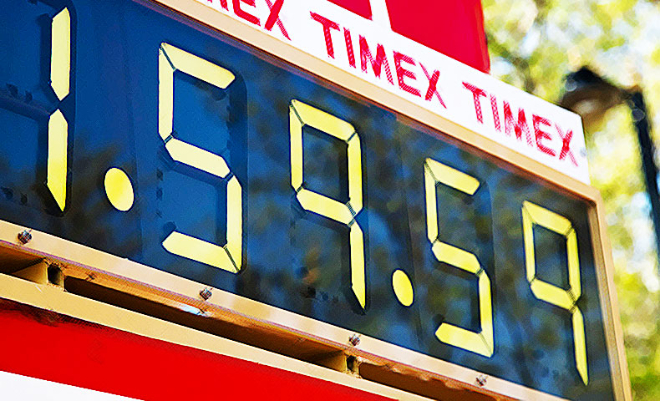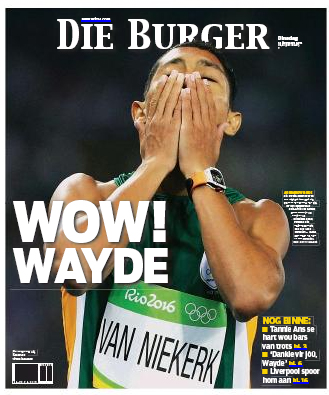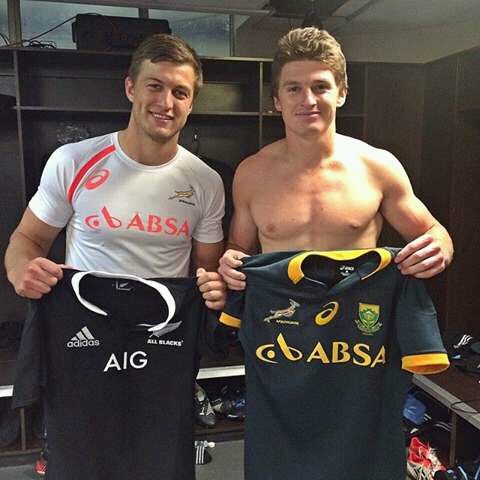 Never backward in coming forward, Nike has got in on the festive mood in a cunning way with its announcement that it was behind the ultimate vanity project: producing the world’s first sub-two-hour marathon.
Never backward in coming forward, Nike has got in on the festive mood in a cunning way with its announcement that it was behind the ultimate vanity project: producing the world’s first sub-two-hour marathon.
As gimmicks go, this one is right up there in the chutzpah stakes. Nike know how to get people talking and this has done the job.
Like the sub-four-minute mile, once considered unassailable, the sub-two-hour marathon has taken on mythical status. Given the tiny increments with which the marathon record has been reduced, the general reckoning was that it would take 75 to 100 years to get near the target.
Whatever happens, the bid won’t have the romanticism or lore of Roger Bannister’s heroic mile run at Oxford in 1954. This one is strictly business.
The athletics apparel giant will put its financial muscle behind the move, using 20 experts and three of the world’s best marathoners. Guinea pigs will abound. There will be laboratory testing and careful calibrations. There will be shoe technology and controlled conditions.
IIt will be every bit the marketing sleight of hand it appears to be
It will be every bit the marketing sleight of hand it appears to be, with smoke and mirrors thrown in for good measure. Whatever it takes.
Although details are sketchy – the announcement was made via single technology and athletics websites – the sponsors are sure to opt for a closed course (at sea level) and optimal conditions.
The science will be managed to the nth degree, with emphasis on nutrition and dehydration. The biggest focus, naturally, will be on the running shoes which will be optimised by a company whose business it is to make athletes run faster. Given a goal like this, all bets are off as to what might be produced. Short of the techies adding jet engines, they are likely to have a full go.
Unfortunately for Nike, the three most recent record holders, including Dennis Kimetto, who set the 2:02:57 world best in 2014, are not part of the project – they are contracted by the other lot, adidas.
But they still have three men on board with the potential to go exceptionally fast: Eliud Kipchoge of Kenya, Lelisa Desisa of Ethiopia and Zersenay Tadese of Eritrea.
Kipchoge is the Olympic champion and 2016’s form man with a personal best of 2:03:05. Desisa won the Boston Marathon the year of the bombing (2013) and has a 2:04:45 PB.
Tadese is the slowest (2:10:41), but holds the world record for the half marathon.
Speed is everything in the pursuit of the record. A 1:59:59 run would require an insane 2:50/km pace, significantly down from the 2:55 set by Kimetto. A full 2,5 percent must be knocked off – a massive chunk that would constitute a near miracle performance.
In 100m terms, that would be like slicing 0.24 seconds off Usain Bolt’s 9.58 sec world record.
We are in the era of super-fast running with a potential record in the offing almost any time one of the major marathons is run. The Berlin course is fastest. It is flat, has few corners and temperatures are mild to cool, conditions that have led to six of the last seven world records falling since 2000 in Germany.
Even now, in the early stages of the Nike news, two camps have emerged. The most evident is the one questioning the legitimacy of the project. Everything about it reeks of a con job.
But, hey, this is 2016 – anyone who still believes in the sanctity of sport must live in La La Land. Just ask the Russians.
Sport is full of gimmicks anyway.
The Springboks playing the Proteas in a cricket match was one such event.
Earlier this year, Justin Gatlin ran 100m in 9.45 sec on a Japanese game show. It was the fastest ever, but he needed wind turbines to help him along.
And this week the NFL said it would introduce dodgeball in an effort to breathe life into Pro Bowl weekend.
The other camp sees the project for what it is – a cheeky marketing move – and are seduced by its theatrical nature. It may not be on the level, but it sure will be fun.
I’m caught somewhere in the middle, an old duffer who adores tradition, but also someone who admires the audacity and can-do spirit of entrepreneurs and, yes, even hucksters shot through with vanity.
Screw it, they should do it. – © Sunday Tribune


